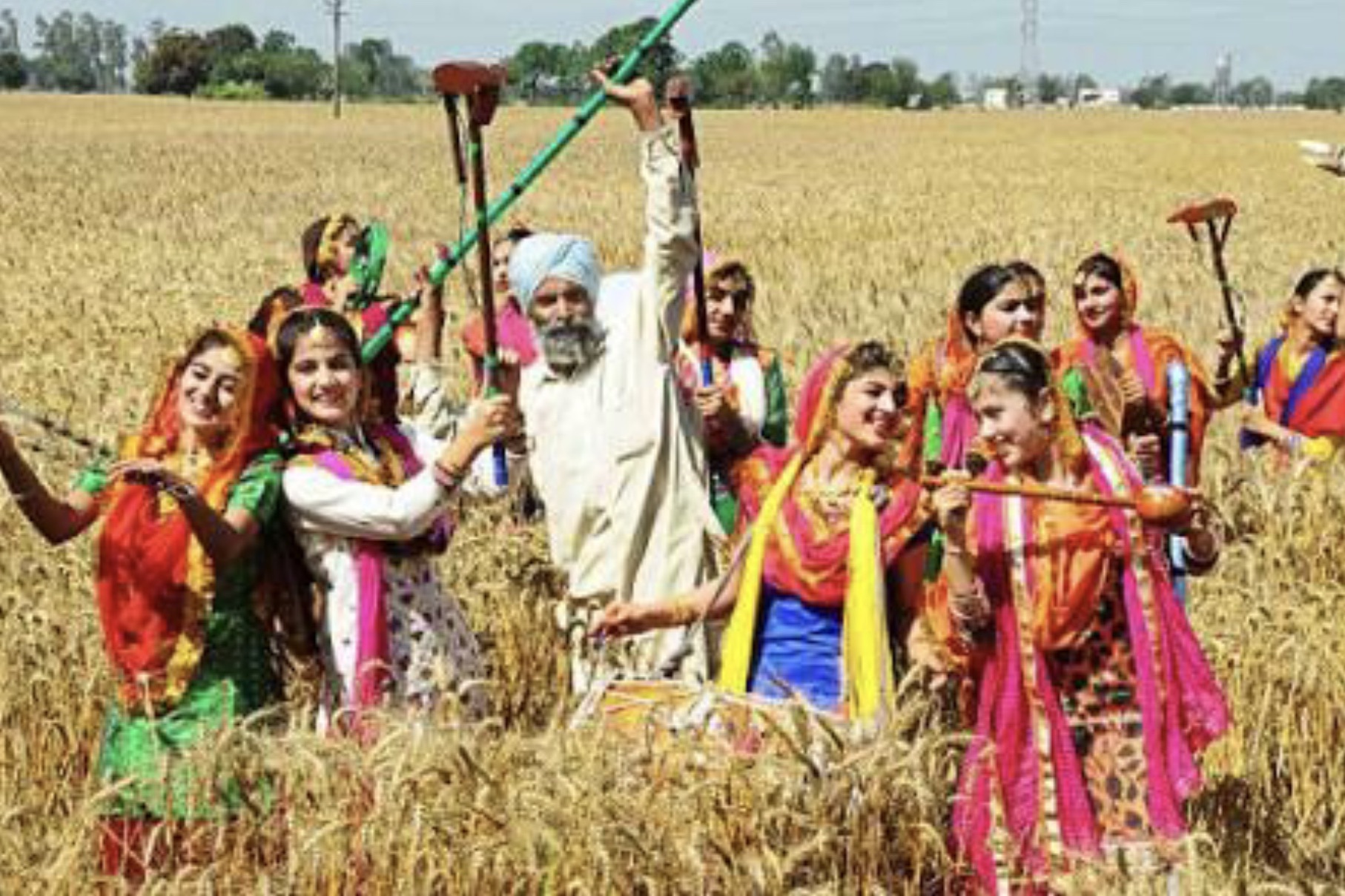
It’s raining as I write this. Not a gentle pitter-patter but a heavy downpour, with God adding a spectacular light and sound show for good measure. Thirty years ago, the ignorant me would have rejoiced at this. When I started practice in this suburb I had no idea about the delicate balance between rainfall and crops. For me, rain around this time of the year meant a few days of respite from the long, scorching North Indian summer. Once after a wide spread shower I commented on the pleasant, cool weather to a patient and he lamented how his crops had been razed to the ground, completely wiping him out . From then on I learnt to be more careful in venting my opinions and have acquired some basic knowledge on how farming is done in our country.
Agriculture is rain dependant in India. It has to be in the right quantity at the right time. Too little and droughts happen, too much and there are floods. But thats not all, rain at the wrong time can, in the least, effect the quality of grain and sometimes destroy the crop completely. Considering this, I have always been intrigued by the calm resignation with which traditional farmers deal with the situation. The common phrase they use for rainfall is, “ Ram baras gaya.” It is a blessing from above, no matter what, even if it ruins them.
Sadly, unpredictable rainfall is not the only adversity farmers face. Besides precipitation which is beyond anyone’s control there are other factors that can be improved if someone cared. Orthodox farming methods, ancient technology, inadequate storage facilities, inaccessible institutional loans, no crop insurance and unfair markets keep the farmers hovering around the poverty line. Because of this most agriculturalists do not want their children to follow their footsteps. Instead they want them to adopt more dependable means of income through white or blue collar jobs. There changing aspirations are reflected in the way children are named. When I started practice Zamidar Singh or Zamidara was a favoured name. Over the years the number of Subedar Singhs, Judge Singhs and Collector Singhs have grown. On the bright side I have come across some enterprising young men who are using modern farming methods and are happy doing what they do, but they are a rarity.
For an agriculture based economy the condition of food growers in our country is shamefully deplorable. Farmer suicides is a recurring theme in the parliament. It is brought up by the opposition to embarrass the government. A drama, just to grab eye balls and little else. And while we may debate, ad nauseam, which state and which ruling party has driven more farmers to take their own life, our concern should be elsewhere. Studies reveal that non-institutional debts are the leading cause of farmer suicides. This indicates that government loans don’t reach the neediest of the needy. More worrisome is the fact that educated farmers, those who are at least matriculate are more likely to take this extreme step as opposed to their illiterate brethren. A grim reminder that education will create awareness about the glaring injustices farmers face and their discontent will grow. Already, the younger generation does not see agriculture as a viable career option. You can sense it in the way youngsters engaged in farming respond to questions about their occupation. The answers range from the outright , “ Eebay toh kuchh nahin karta” ( I don’t do anything right now) to the more subtle “ Nyu hi maarhi moti kheti baadi kar lein” ( I do a little bit of farming) If, to the young farmers of a country, a peon’s job sounds more lucrative then a food grower’s, the country is heading for troubled times.
Baisakhi would have passed by the time this reaches you. It is a rural festival marking the beginning of the solar year and is celebrated with great fervour in the predominantly agricultural states of Haryana and Punjab. For the Sikhs the day also commemorates the founding of the Khalsa Panth by Guru Gobind Singh. More importantly, it celebrates the harvest season. Farmers rejoice and thank the Lord for their good fortune. But with rain and hailstorms damaging Rabi crops and an unreliable safety net, the reasons to rejoice keep diminishing. As always, promises of compensation from the government trickle in but the big question is, will it reach the poor farmers or will it be devoured by the greedy officials entrusted to distribute it.
Despite all this, farmers fight odds, put everything on stake and grow food for us. We get our daily bread because of these great gamblers. The question is, for how long will the hands that feed us ignore the injustice we mete out to them. There is a Haryanvi saying which applies to agriculture in particular and life in general. Khad pade te khet, nah te kooda ret ( Without manure a field is just a pile of dirt and sand). We have to try harder then, to ascertain that our farmlands don’t become wastelands. For that we will have to restore the farmer’s faith in the system and not let them drown in despair. It is a given that their livelihood depends on rains, but we, as a society, should ensure that their life does not depend on it.
( published in my column in the Tribune on 14/4/2018)
Unfairness and indifference shall kill the incentive to pursue a vital profession…
Be it Farming or Medicine ….
Hope Politicians wake up to harsh realities voluntarily lest a revolution does it rudely at the hustings